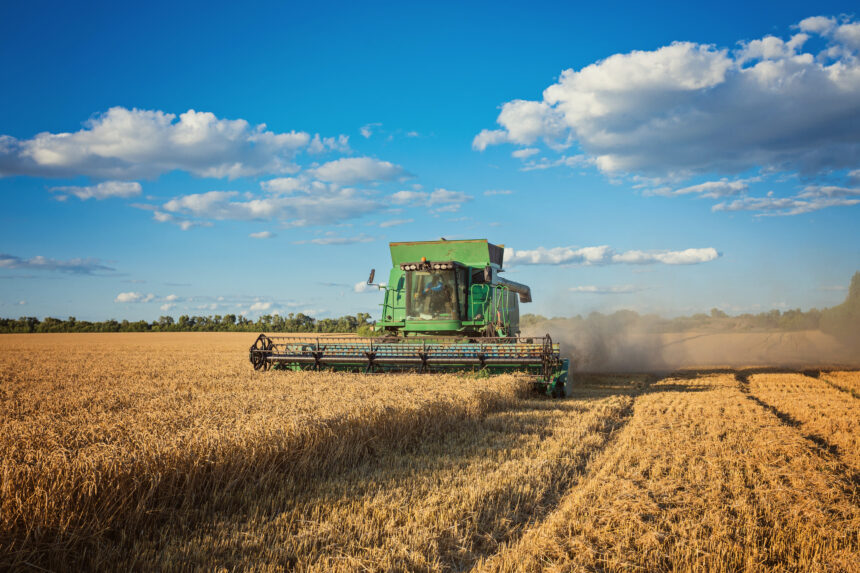Farming and agriculture are vital sectors of the global economy, providing essential food and resources for societies around the world. However, running a successful agricultural venture requires significant capital investment, making access to credit crucial for farmers and agricultural businesses. Obtaining loans tailored specifically for farming and agriculture can help farmers expand their operations, invest in modern equipment and technology, and overcome financial hurdles. In this article, we will explore the various types of loans available for agricultural ventures and the importance of credit accessibility in the farming industry.
Types of Loans for Agricultural Ventures:
- Operating Loans: Operating loans are short-term loans designed to cover day-to-day farming expenses such as purchasing seeds, fertilizers, pesticides, and fuel. These loans provide farmers with the necessary working capital to manage their operations effectively. Typically, operating loans have a repayment period that aligns with the farming cycle, allowing farmers to repay the loan after they have harvested and sold their crops.
- Equipment Loans: Modern agricultural equipment plays a crucial role in improving efficiency and productivity on the farm. However, purchasing or upgrading machinery can be a significant financial burden. Equipment loans specifically cater to farmers who need to invest in tractors, harvesters, irrigation systems, and other farm equipment. These loans often have longer repayment periods and lower interest rates to accommodate the substantial costs associated with agricultural machinery.
- Real Estate Loans: Farmers who want to expand their operations or acquire new farmland often require long-term financing solutions. Real estate loans for agriculture provide the necessary funds to purchase land, construct buildings, or make improvements to existing property. These loans usually have extended repayment periods, allowing farmers to gradually repay the borrowed amount over several years.
- Farm Improvement Loans: To enhance their agricultural productivity, farmers may need to invest in infrastructure improvements or make upgrades to their existing facilities. Farm improvement loans provide financing for projects such as building barns, installing irrigation systems, or upgrading storage facilities. These loans enable farmers to optimize their operations, enhance efficiency, and increase their overall yield.
Importance of Credit Accessibility in Agriculture:
- Business Expansion: Access to credit is essential for farmers looking to expand their operations. Loans allow them to invest in additional land, machinery, and technology that can increase productivity and profitability. By securing financing, farmers can take advantage of opportunities to scale up their businesses and meet the growing demand for agricultural products.
- Technological Advancements: The agricultural industry is constantly evolving, with technological advancements playing a vital role in improving efficiency and sustainability. However, implementing new technologies often requires significant upfront investment. Accessible credit enables farmers to adopt innovative practices, such as precision agriculture, automated systems, and data-driven analytics. These advancements can result in higher yields, reduced costs, and better environmental stewardship.
- Risk Management: Agriculture is susceptible to various risks, including unpredictable weather patterns, market fluctuations, and pests. Farmers need financial resources to mitigate these risks effectively. Loans for agriculture provide a safety net, allowing farmers to overcome unforeseen challenges by providing them with the means to invest in insurance, hedging strategies, and diversification of their crops or livestock.
- Generational Transfers: Many farming operations are family-owned and passed down through generations. Access to credit ensures a smooth transition from one generation to the next. Young farmers can obtain loans to acquire land or finance the purchase of existing family farms, enabling them to continue the family legacy and contribute to the agricultural industry’s sustainability.
Conclusion:
Accessing credit for agricultural ventures is crucial for the growth and development of the farming industry. Loans tailored for farming and agriculture provide farmers with the necessary funds to cover operating expenses, purchase equipment, acquire land, and make infrastructure improvements. By facilitating business expansion, technological advancements, risk management, and generational transfers, accessible credit strengthens the agricultural sector, ensuring a sustainable food supply and economic stability. Financial institutions and government programs play a vital role in supporting farmers by providing flexible loan options that meet the specific needs of the agricultural community.










